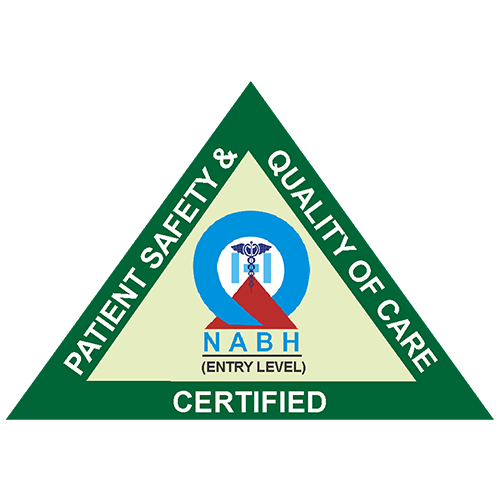Overview:
A kidney stone, a solid piece of material that travels through the urinary tract is formed from uric acid, a waste product usually discharged with urine.
Kidney stones can result from an excessive amount of uric acid in the body or an imbalance of minerals like calcium and oxalate. Moreover, a diet high in fat and cholesterol can elevate uric acid levels over time, leading to kidney stone formation. Notably, all kidney stones are not created equal.
Several states in India have seen a surge in urolithiasis incidence, primarily affecting young individuals. The risk of kidney stone recurrence is 7 % per year, translating to a 35 % chance of reforming a stone after five years and over 50 % chance after a decade. The management of urolithiasis includes not only the surgical or endoscopic removal of the stone but also the prevention of further stone formation through lifestyle and dietary modifications.
The most prevalent type of kidney stone arises from an excess of calcium and oxalate in the urine, which crystallize and form stones.
How Do Kidney Stones Vary From Each Other?
Not all kidney stones are the same. In fact, there are two main types of kidney stones: calcium oxalate stones and uric acid stones.
- Calcium oxalate stones are the most common, accounting for around 80 % of all kidney stones. These stones can be caused by factors such as dehydration, a diet high in protein and oxalates, and certain medical conditions.
- Uric acid stones, on the other hand, make up around 15 % of all kidney stones and are caused by excessive uric acid production, low intake of potassium and magnesium, and certain medical conditions such as type 2 diabetes and obesity.
It’s important to note that each type of kidney stone requires a different treatment approach, so it’s crucial to identify the type of stone you have in order to receive the proper care.
What Are the Diet Recommendations to Prevent Kidney Stones?
The incidence of kidney stones has been steadily increasing in recent years, and diet is believed to play a significant role in their development. Here are some dietary guidelines that can help prevent the formation of kidney stones.
1) Drink plenty of water:
- Drinking enough water is one of the most important steps to prevent kidney stones.
- It helps to dilute the urine and flush out any minerals that might form stones.
- A good rule of thumb is to drink at least eight glasses of water per day.
2) Limit your intake of oxalate-rich foods:
- Oxalate is a natural compound found in many foods, including spinach, rhubarb, beets, nuts, chocolate, and tea.
- If your body absorbs too much oxalate, it can combine with calcium to form kidney stones.
- You don’t need to eliminate these foods from your diet entirely, but you should limit your intake of them.
3) Eat a balanced diet:
- A healthy diet that includes plenty of fruits, vegetables, and whole grains can help prevent kidney stones.
- These foods provide a variety of vitamins and minerals that help keep your body healthy and reduce your risk of kidney stones.
4) Limit your intake of animal protein:
- Animal protein, including meat, poultry, and fish, can increase the levels of uric acid and calcium in your urine, which can lead to the formation of kidney stones.
- You don’t need to eliminate animal protein from your diet entirely, but you should limit your intake.
5) Reduce your sodium intake:
- Eating too much salt can increase the amount of calcium in your urine, which can lead to the formation of kidney stones.
- Limit your sodium intake to no more than 2,300 milligrams per day.
7) Choose calcium-rich foods:
- While calcium can contribute to the formation of kidney stones, it’s important to get enough calcium in your diet.
- Calcium can bind with oxalate in the digestive tract and prevent it from being absorbed by the body. Good sources of calcium include milk, yogurt, and cheese.
8) Talk to your doctor about supplements:
- If you’re at risk for kidney stones, your doctor may recommend taking supplements of certain vitamins and minerals, such as magnesium, or potassium citrate.
- These supplements can help prevent the formation of kidney stones in some people.
Conclusion:
In conclusion, taking care of our bodies is crucial to living a healthy and fulfilling life. By implementing simple dietary guidelines, we can reduce our risk of developing painful and potentially serious kidney stones. It’s important to prioritize hydration, limit consumption of oxalate-rich foods, and maintain a balanced diet full of nutrient-rich foods. By doing so, we can prevent the formation of kidney stones and ensure our urinary tract stays healthy and happy. Remember, prevention is key, so let’s take the necessary steps to care for our bodies and live life to the fullest.





Your website has helped me find my way through the huge amount of information out there. I hope that your efforts continue to be successful and brilliant.
tadalafil pill
best time to take sildenafil
river pharmacy baclofen
vardenafil dose
tadalafil site:doctoroz.com